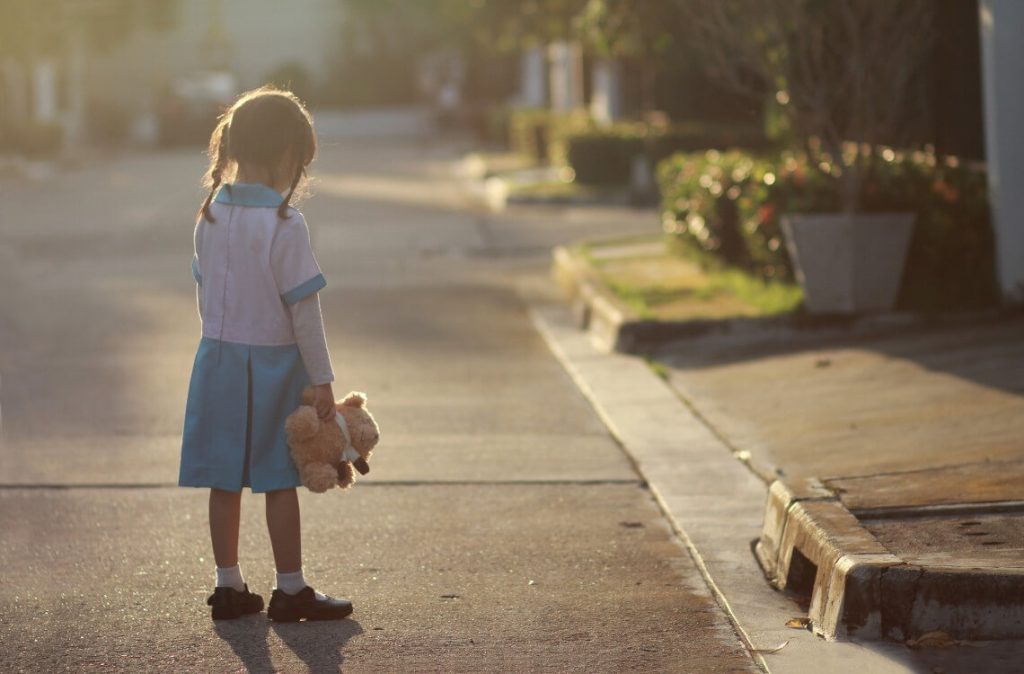The notion of children’s mental health has been a topic of discussion in the past decades, even more so throughout life in lockdown.
The harsh reality is, the fight against childhood abuse began even before the pandemic hit. It calls for the dire need for our nation to initiate more critical discourses to educate the masses on protecting the little ones.
Its message stays relevant to this date. Most notably in the year 2020, which only grew more alarming as we progress into the following year.
Calls to the government domestic abuse helpline, Talian Kasih, back in February 2020 when the Movement Control Order (MCO) was first implemented increased by six-fold compared to the year before.
The helpline recorded a total of 25,868 calls in 2019. The year 2020 however, saw a spike to a total of 153,024 calls. This year in July alone, the Ministry of Health received over 100,000 calls with please for emotional help.
Some of the issues included loss of jobs, income, and shelter. Additionally, there were also arguments among family, and marital problems like quarrels, separation, divorce, emotional and physical abuse.
Children’s Mental health in Times of COVID-19
In most of the reported cases, children are most vulnerable with barely any room to voice their struggles stemming from their livelihoods.
The pandemic essentially brought to light just how vulnerable children are, being sent indoors to live with their abusers, or within the smothering confines of their home.
The United Nations shared a report this month on, “The State of the World’s Children 2021.” It recorded at least one in seven children and young people worldwide lived under stay-at-home policies in most of 2020. This has led to cases of anxiety, depression, and isolation.
Some families may have had the privilege of a happy, conducive home. However, a large portion of children will also return to schools with traumas, emotional and even physical scars of their own.
Back to School with Baggage and Support
As children return to physical classes in school, many will be returning with anxieties and struggles of their own.
We must remember the pandemic has stolen millions of lives. Many of those are parents and guardians to children. A common scenario then finds, some children attending classes as they silently mourn their loved ones. Others could struggle to keep up with the syllabus due to the constraints of online learning, while some endured abuse from the prolonged staying at home.
Unicef Malaysia therefore, calls for the government to double of efforts for helplines like Talian Kasih. Helplines are a major source of help to silenced children and should be open 24/7, ideally for only children.
Unicef also partnered with the Ministry of Education (MOE) and the International Association of Counselling Malaysia (Perkama International) in August 2020.
This partnership took on a whole of school approach by providing training to 120 school counsellors and special education teachers. This is to better provide psychosocial support to the children, parents and teachers in need.
This rose from the concern a lack of access to financial and social support from family and loved ones have been key risk factors to children’s development and mental health.
LPPKN Partnership with Unicef Malaysia
Concerns arose when the police released statistics on suicide rates in the country this year. It revealed that half of the cases reported from January to May involved adolescents aged 15 to 18.
Unicef Malaysia has therefore partnered with the National Population and Family Development Board (LPPKN) to address parenting support.
“Since the start of the movement controls, children have had constrained access to socialisation, play and even physical contact, which are critical for their psychosocial well-being and development. ”
– Sarah Norton-Seal, Unicef Malaysia Chief of Child Protection.
This is because effective parenting plays a critical role in mitigating mental health problems children might face, especially during the pandemic.
According to Norton-Seal, this partnership will see through a number of modules to strengthen parenting support. This of course includes helping parents cope with the drastic change of lifestyle and educating them on online protection for children.
Parents will then have access to the modules easing their understanding of online learning for their children. Additionally, they will also have access to social recourses along with an abundance of parenting tips in times of COVID-19.
Play Your Part to Incite Change for the Better
As life reverted indoors, it raised the notion of privilege. Those with the luxury of a spacious home, ample amenities, and a happy family will find it less taxing than those without.
Essentially, however, when it comes to children’s mental health, it all boils down to the child’s own individuality. Be sure to check in your little one if you notice a change in their behavior and mannerisms.
Most importantly, don’t be afraid to seek help from those around you, and especially certified professionals. It is always worth a call to authorities when a child’s wellbeing is at stake, be it your own children, or a stranger’s.
For more COVID-19 updates and plenty of insightful reads, stay tuned to Motherhood Story.
* If you are distressed, lonely or having intrusive thoughts, Befrienders offers free and confidential support 24 hours a day. Contact Befrienders KL at 03-79568145 or 04-281 5161/1108 in Penang, or 05-5477933/7955 in Ipoh or email sam@befrienders.org.my.
